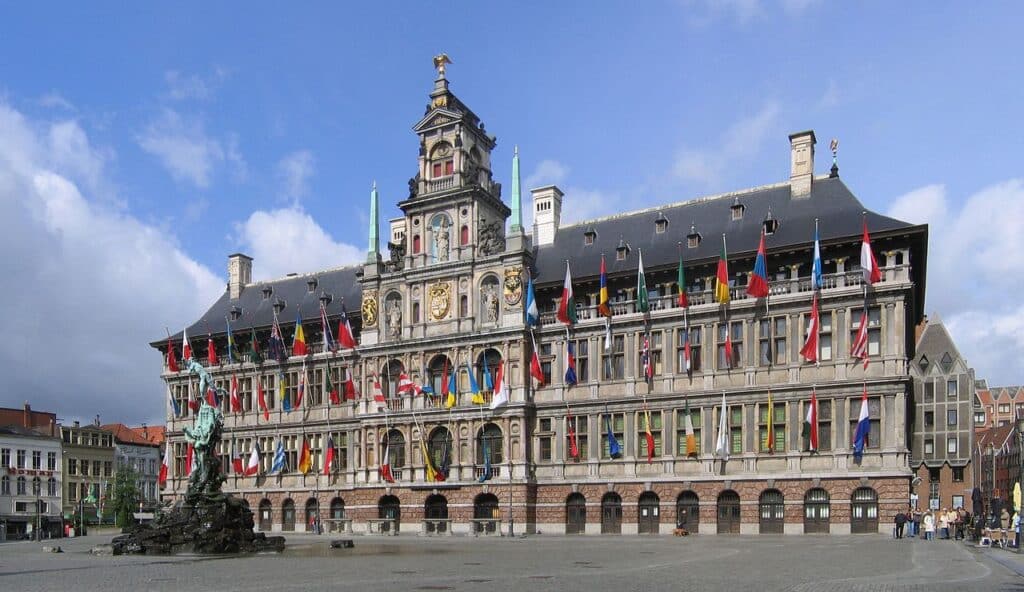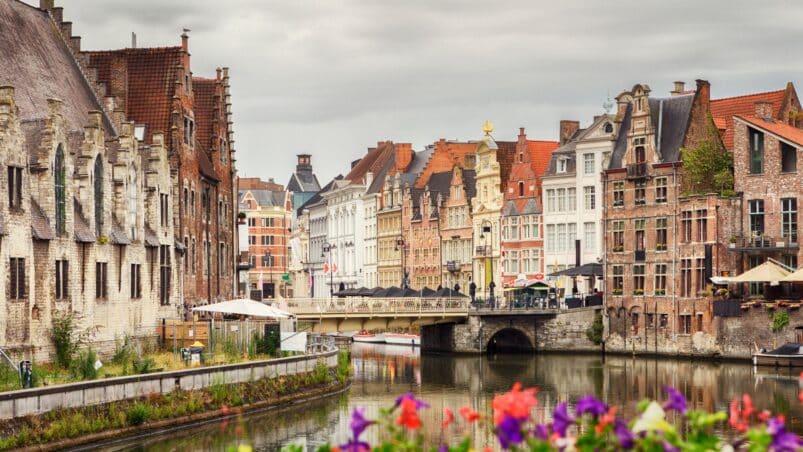The Flemish government has announced that solar panels are allowed on nearly all monuments. The Flemish Minister of Built Heritage decided to do away with the strict rules in an attempt to help citizens combat the current energy crisis and make monuments more sustainable. Changing the strict rules on heritage preservation might seem like a strange move at first, but allowing sustainable adaptations to monuments could prove important for the future of heritage. What can other countries learn from this?
Making heritage structures sustainable is no easy task in Belgium given the strict rules and conditions on adapting monuments. Hence why Flemish Minister of Housing Matthias Diependaele decided to try a new approach, Dutch heritage news platform De Erfgoedstem reported. The rules concerning solar panels on roofs are completely abandoned, with the exception of a few special cases such as Unesco World Heritage sites.
“Unesco rules still do not allow solar panels on a number of monuments, such as beguinages or belfries”, Diependaele told Belgian newspaper De Standard. “The entire city centre of Bruges is also protected by Unesco. An application will have to be submitted to Unesco, but it will not be easy. Antwerp’s city hall is also a belfry. It might be possible there, as long as the panels are not visible.”
With the exception of Unesco sites, people who own a monument, for example a castle, and citizens who live in a protected town or cityscape should profit from this decision. They often have a hard time paying their energy bill but are not allowed to invest in green energy, such as solar panels. “With this measure, we can help many Flemish people in the coming weeks, months and years”, Diependaele explained in the Belgian newspaper De Morgen.

Limit damage to heritage
The minister expects owners to be able to make responsible decisions about their monuments: “The most important thing is that no damage is done to the heritage when installing solar panels so that the intervention is reversible. The impact on the perception of the heritage and the heritage value should preferably be kept as limited as possible.”
He also stated that the ‘solar panel issue’ will probably be solved in five to ten years. “Thanks to new techniques, solar panels will probably eventually disappear out of sight, as was previously the case with satellite dishes.” Diependaele also expects that the generation and distribution of green electricity will become a collective responsibility over time.
One way or the other
The Flemish decision to allow solar panels on nearly all monuments by default could serve as inspiration for others to make the sustainability of heritage more accessible. For example, take a look at the neighbours of Flanders, the Netherlands. Every Dutch municipality or region has its own set of rules to adapt to local needs and is mainly focused on preserving the monumental value of heritage structures.
Basic adaptations such as isolating walls, installing double insulation glass or placing solar panels are regarded as a threat to that value. Combined with a slow, bureaucratic process of obtaining a sustainability permit, it is notoriously difficult for monument owners to make their property more sustainable, writes the Dutch newspaper Financieel Dagblad.
It’s frustrating: no less than 90% of monument owners want to become more sustainable, mainly to reduce energy costs, according to a 2021 survey by the Dutch Cultural Heritage Agency. And if the situation doesn’t change, there is a chance that owners will adapt their property anyway, with or without a permit. Carrying out renovations without a permit would arguably do more damage to the heritage value.
Monuments are of no use if you fail to achieve climate goals
Professionals in the Dutch heritage sector are helping owners with tips to make their monuments more sustainable, but also hear a lot of complaints about the strict rules. Suze Gehem, director of sustainable built heritage agency De Groene Grachten, feels local politics should go beyond the existing dogmas on heritage and sustainability. “Monuments are of no use if you fail to achieve climate goals”, she told Financieel Dagblad. “I would like to see that there is more room for solar panels and insulating vacuum glass, and that municipalities start working with so-called ‘quick permits’. That way, an application is processed faster.”
Bend or break
The Flemish decision could inspire the European heritage sector to take the lead in making heritage more sustainable. Given the need to adapt to climate change and energy costs, changes in policies seem inevitable. Let’s make sure that the sector is actively involved in the decision-making process, instead of letting the decision be made for us.

